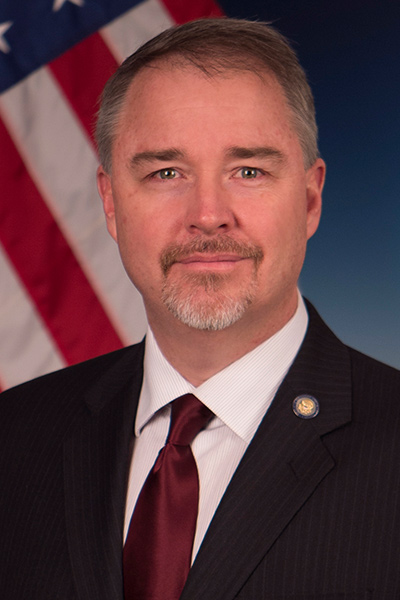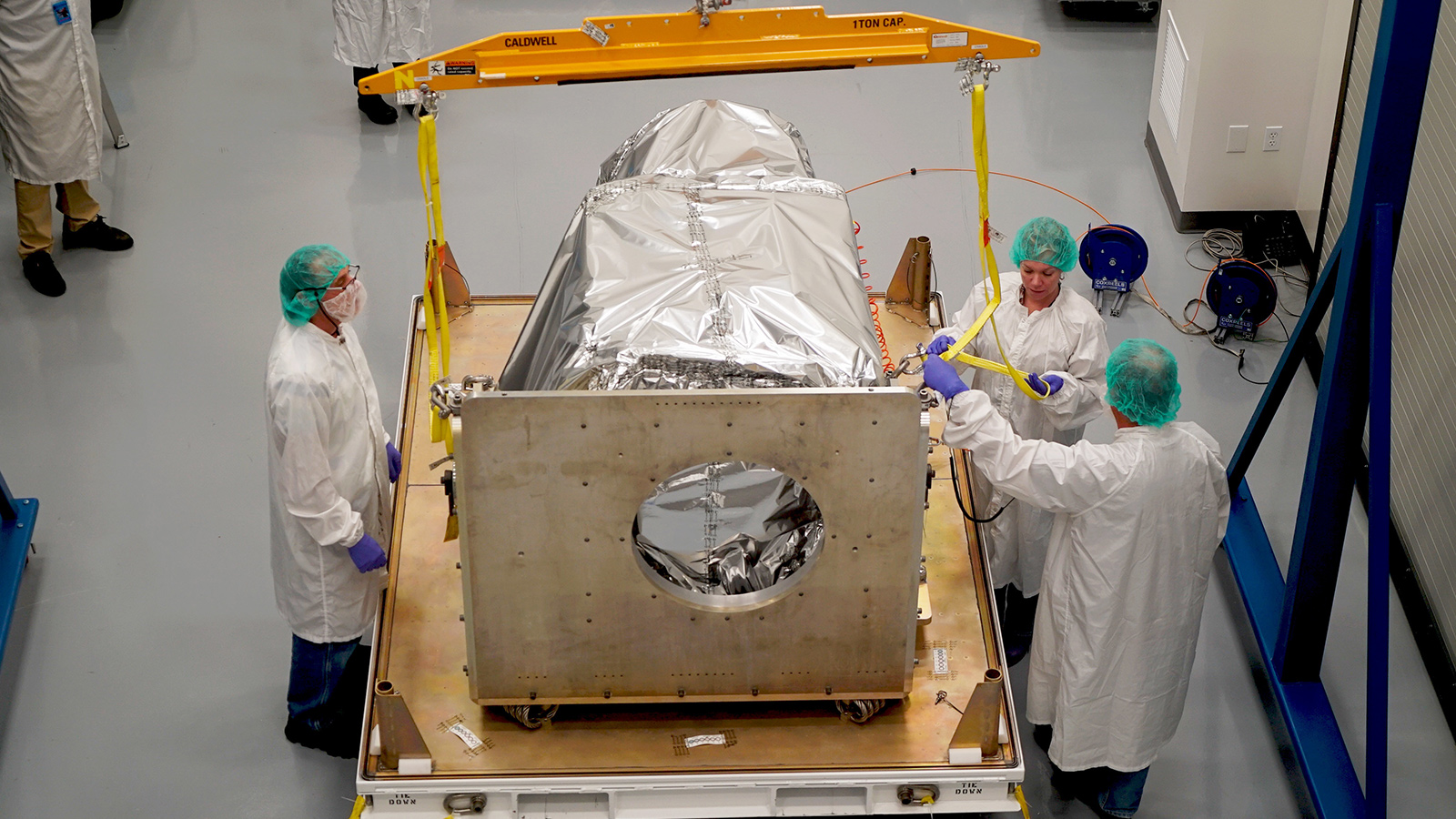Stay Up to Date
Submit your email address to receive the latest industry and Aerospace America news.
SPACE SYMPOSIUM, COLORADO SPRINGS, Colo. — Fred Kennedy has a message for those who question the Pentagon’s wisdom in creating the Space Development Agency, the new agency that he leads.
SDA is a “golden opportunity” for the space community at large to re-evaluate its culture, he told me in an interview today about the agency that will develop and acquire satellites, weapons and equipment yet to be specified.
Part of that re-evaluation will involve rethinking military development processes.
“We spend an inordinate amount of time reviewing programs, we spend an inordinate amount of time in tests,” he said. “That is not how you respond to a rapidly evolving threat.”
He referred specifically to China and Russia during our discussion.
“If a threat moves quickly, you’ve got to move quickly, and you can’t afford to wait a decade to put your capability up, because it’s 10 years out of date by the time you do.”
Another part of the re-evaluation will involve tapping the unfolding revolution in commercial small satellites.
The SDA’s first major project is something Kennedy calls the “space transport layer.” This global network of small satellites in low Earth orbit would be a megaconstellation of some kind, meaning one with hundreds of satellites. It would provide a constant stream of low-latency data transfer between space and ground elements.
The project may “leverage a significant amount of commercial input,” Kennedy said, and is an example of how SDA will harness private-sector innovation.
“We have an opportunity because there’s so much money pouring into the commercial sector, this would be a great time to jump on and collaborate with all of the new space and other providers to figure out how to do this in a way that won’t break the bank,” said Kennedy, who is scheduled to speak here at 2 p.m. Mountain time Tuesday.
Kennedy said U.S. military space developers have created a culture of “hyper-reliability” in which performance is viewed as nearly everything. Perhaps taking inspiration from Silicon Valley, Kennedy said, his mission for the SDA will be to put out equipment and software in sequence, innovating with each iteration.
“We want to put out capability early, as early as 2022,” Kennedy said. “We want to go up in two-year upgrades after that. Boom. Boom. Boom. Boom. I’m less concerned about hitting a performance target and more hitting the schedule.”
He believes this quick turnaround time is essential for the U.S. to develop the “lethal, resilient, threat-driven and affordable military space capabilities” described by Acting Defense Secretary Patrick Shanahan last month in the agency’s founding memo.
Shanahan directed the SDA to develop “next-generation military space capabilities,” a directive that has drawn criticism from elements of the Air Force, which produces the lion’s share of U.S. military satellites.
Kennedy said he has “no intention of duplicating” the efforts coming from existing agencies, but rather in “trying to go after areas that are not being addressed by legacy systems.”
“I’m not going to wait for someone to validate the need for the capability,” he said. “I’m going to get in front of that. I’m going to talk to the intel community, I’m going to talk to the war fighters in a combatant command and say, ‘What are you faced with right now, and then how can I respond to that now?’”
“If a threat moves quickly, you’ve got to move quickly, and you can’t afford to wait a decade to put your capability up, because it’s 10 years out of date by the time you do.”
Fred Kennedy, director of the U.S. Space Development Agency
About cat hofacker
Cat helps guide our coverage and keeps production of the print magazine on schedule. She became associate editor in 2021 after two years as our staff reporter. Cat joined us in 2019 after covering the 2018 congressional midterm elections as an intern for USA Today.
Related Posts
Stay Up to Date
Submit your email address to receive the latest industry and Aerospace America news.





